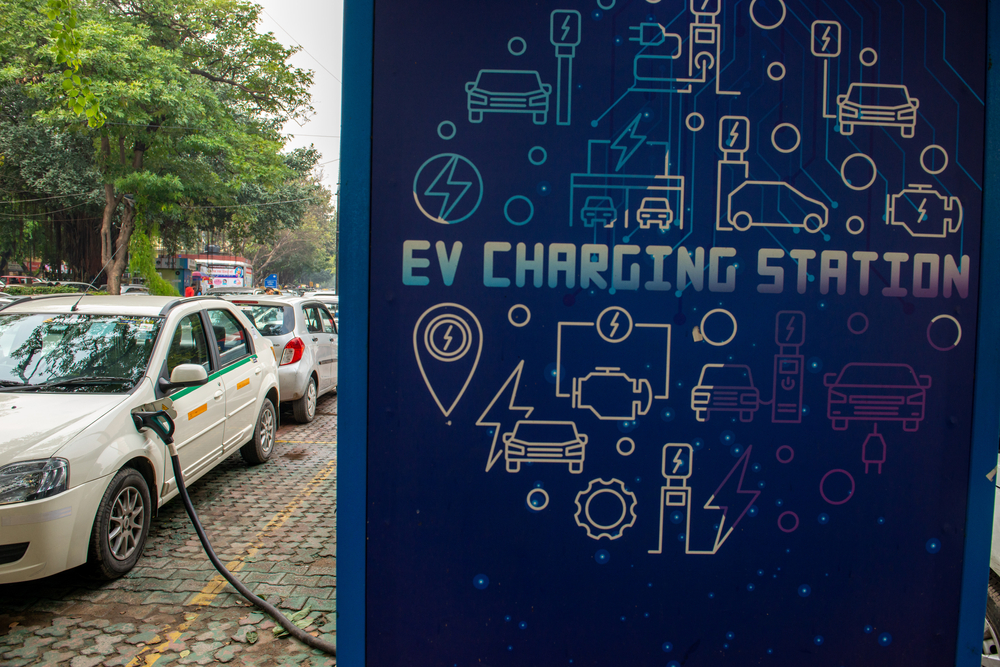
Climate change is real and might cause real existential crisis in the near future. Electrification of transport is one crucial building block towards a greener future. Last year, a study reiterated that an electric vehicle has fewer lifetime emissions—including greenhouse gases associated with production, use, and disposal—than a petrol-powered car across 95 per cent of the world’s transportation systems.
Indian electric vehicle startups understand the gravity of situation. They are leading the path to electric mobility in India. Startups are offering products and services across the entire value chain: battery pack manufacturing to charging station manufacturing to electric vehicle manufacturing to battery recycling and to electric mobility services. The only part of the value chain that is missing is actually the first part: lithium-ion cell manufacturing. As a matter of a fact, cells (not battery) can be 30-35% of cost of an electric vehicle.
As per a report by Center for Energy Finance, India would require an estimated annual battery capacity of 158 GWh by FY30. Going by the fact that current battery pack costs $137, which is expected to reduce further in coming years, India would be importing more than $21 Bn worth of batteries every year by 2030.
Government understands this situation very well and has recently approved a Rs.18,100 crore Production Linked Incentive (PLI) scheme for Advanced Chemistry Cell (ACC) sector to make India 'Atmanirbhar' for the upcoming wave of electric vehicles.
What is the PLI scheme for Advanced Chemistry Cell sector?
ACCs are the new generation of advanced storage technologies that can store electric energy either as electrochemical or as chemical energy and convert it back to electric energy as and when required. ACCs are not only electric vehicles. Rather they are used heavily in consumer electronics, advanced electricity grids, solar rooftop etc.
While several companies have already started investing in battery packs, the capacities of these facilities are too small when compared to global averages, but there is negligible investment in manufacturing, along with value addition, of ACCs in India. All the demand of the ACCs is currently being met through imports in India.
In view of that, government has approved the proposal of Department of Heavy Industry for implementation of the Production Linked Incentive (PLI) Scheme 'National Programme on Advanced Chemistry Cell (ACC) Battery Storage’ for achieving manufacturing capacity of Fifty (50) Giga Watt Hour (GWh) of ACC and 5 GWh of "niche" ACC with an outlay of Rs.18,100 crore.
This policy is visionary in nature and will act as a strong support to the rapidly growing EV ecosystem, which is going to be one of the most promising sectors in the coming years. This scheme will act as a vital push in making India self-reliant in cleaner technologies and will drastically reduce our import dependence.
Since the policy requires ACC battery manufacturers to ensure at least 60% value addition within 5 years, it will encourage manufacturers to lay a strong emphasis on research and development to achieve higher specific energy density and cycles in ACC and also promote newer and niche cell technologies.
How is this policy beneficial for EV startups in India?
Electric vehicle startups in India have learnt that India is a cost-conscious market. As of now, total cost of ownership of an electric vehicle is a major deterrent for the success of electric vehicles in India. In FY 2021, India sold 143,837 electric two wheeler units which is less than 1% of total two wheeler sales in India. A McKinsey survey in 2017 also revealed that an EV’s purchase price and driving range are the biggest hurdles to wider consumer adoption—and both are linked inextricably to battery economics.
As discussed earlier, PLI for ACC batteries will promote domestic manufacturing of cells in our country, facilitating demand creation for battery storage in India. This will in turn reduce the cost of a cell (no import duty, economies of scale, etc). Startups like Okinawa Scooters, Ola Electric, Ather Energy or Ampere, which are planning to revolutionize the electric two-wheeler market, can pass on these cost benefits to end consumers, generating more demand.
This increased demand will not only benefit EV manufacturing startups, but a trickle-down effect will happen across the entire value chain. More EV sales will result in more sales of startups in charging stations, battery pack manufacturing, battery recycling, battery management system etc.
As per a report by KPMG, electric two-wheeler penetration in India is expected to reach 25-35 per cent and that of e-three-wheelers at 65-75 per cent by 2030, which roughly translates to 10 Mn electric two-wheeler and 1 Mn electric three-wheeler by 2030. As of 2021, legacy players are yet to make a mark in the EV market but startups have already decided to rule this space. Startups like Okinawa, Ather, Revolt already rule over half of the market.
One thing is very clear: PLI for ACC is going to act as a boon for the entire EV startup ecosystem. It is a visionary policy that will set the stage for India to shine at the global level in the green mobility space.
This blog is authored by Shikhar Goel.


